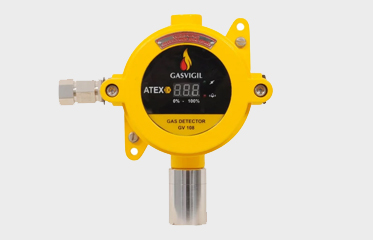
Why Every Industry Should Invest In Hydrogen Gas Detector
In recent years, Every Industry Should Invest in Hydrogen Gas Detector increasing focus on clean energy and sustainability has propelled hydrogen gas into the spotlight. As a versatile and potentially abundant fuel source, hydrogen offers numerous advantages, from reducing carbon emissions to providing energy storage solutions. One of the critical safety measures that every industry should invest in is hydrogen gas detectors. Here’s why.
The Risks Of Hydrogen
Hydrogen, the lightest and most abundant element in the universe, is colorless, odorless, and highly flammable. When mixed with air, it can create explosive mixtures, and even small leaks can pose significant safety risks. Industries such as chemical manufacturing, oil and gas, food processing, electronics, and even renewable energy sectors, where hydrogen storage and usage are becoming more common, need to consider the dangers associated with hydrogen gas.
The Case For Hydrogen Detectors
1. Safety First: Protecting Lives and Property
The foremost reason for investing in hydrogen gas detectors is safety. The presence of hydrogen can lead to potential explosions and fire hazards. Detecting leaks early can provide a critical warning, allowing for immediate action to be taken, thereby saving lives and preventing property damage. In industries where hydrogen is a byproduct or a primary component, the need for a reliable detection system is non-negotiable.
2. Regulatory Compliance
Safety regulations are essential to ensure safe working conditions. Various industry standards and regulations may necessitate the use of gas detection systems, including hydrogen detectors. Depending on the industry and geographical location, compliance with these regulations can avoid hefty fines and legal ramifications while also fostering a culture of safety.
3. Cost-Effective Investment
While some may view the expense of hydrogen detectors as an overhead, investing in these devices can lead to significant cost savings in the long run. By preventing accidents and their associated costs—such as property damage, injury compensations, and downtime—hydrogen detectors pay for themselves. The old adage, “an ounce of prevention is worth a pound of cure,” rings especially true in industries dealing with hazardous materials.
4. Reassuring Stakeholders
In today’s world, having robust safety measures in place is not just about compliance; it’s also about market reputation. For industries looking to reassure customers, investors, and stakeholders, demonstrating a commitment to safety through the implementation of advanced safety technologies can enhance credibility and foster trust.
5. Encouraging Sustainable Practices
As we shift towards greener and more sustainable energy sources, the role of hydrogen is set to expand further. By equipping facilities with hydrogen detectors, industries can confidently commit to incorporating hydrogen into their processes, knowing that safety is a priority. This plays a crucial role in promoting innovative, eco-friendly solutions.
6. Adaptability Across Industries
Hydrogen gas detectors are not limited to one sector; they are applicable in a variety of industries. From petrochemical plants to food production facilities, and renewable energy projects to research laboratories, any industry involved in hydrogen production, usage, or storage can benefit from these detectors. Given the adaptability of hydrogen detectors, organizations can find solutions tailored to their specific needs.
Key Features To Look For In Hydrogen Gas Detectors
When deciding to invest in hydrogen gas detectors, it’s vital to choose the right model that meets the requirements of your industry. Here are some key features to consider:
- Real-Time Monitoring: Detecting leaks as quickly as possible is essential. A good detector provides real-time monitoring and alerts for immediate action.
- Sensitivity and Accuracy: The detector must accurately sense even low levels of hydrogen to prevent dangerous situations.
- Durability and Environment Resistance: Detectors should be suitable for the harsh conditions of various industrial environments.
- User-Friendly Interface: An intuitive interface allows for easy operation and understanding of the readings.
As hydrogen increasingly becomes a cornerstone of modern energy solutions, the need for hydrogen gas detectors is more critical than ever.
